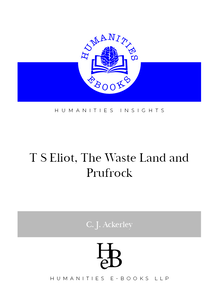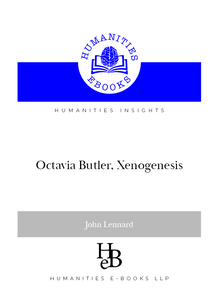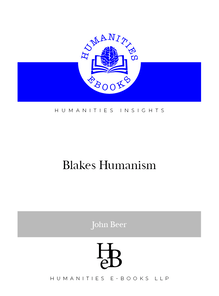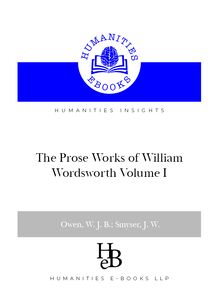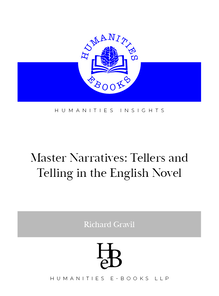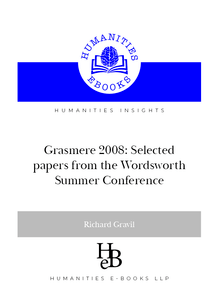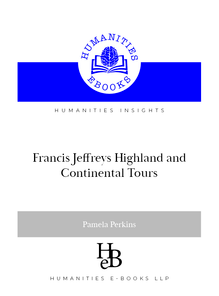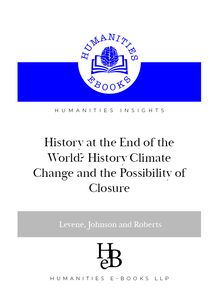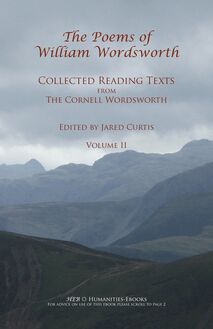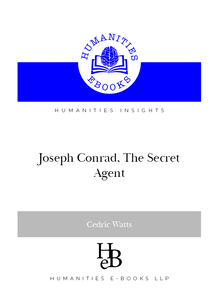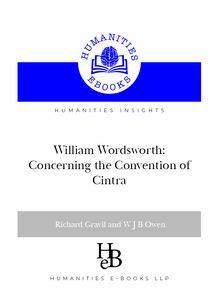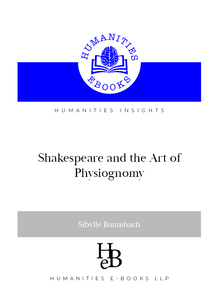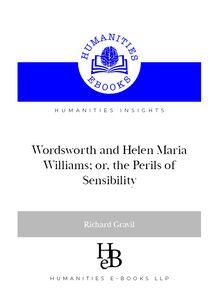-
 Univers
Univers
-
 Ebooks
Ebooks
-
 Livres audio
Livres audio
-
 Presse
Presse
-
 Podcasts
Podcasts
-
 BD
BD
-
 Documents
Documents
-
- Cours
- Révisions
- Ressources pédagogiques
- Sciences de l’éducation
- Manuels scolaires
- Langues
- Travaux de classe
- Annales de BEP
- Etudes supérieures
- Maternelle et primaire
- Fiches de lecture
- Orientation scolaire
- Méthodologie
- Corrigés de devoir
- Annales d’examens et concours
- Annales du bac
- Annales du brevet
- Rapports de stage
La lecture à portée de main
213 pages
English
Découvre YouScribe en t'inscrivant gratuitement
Je m'inscrisGrasmere 2008: Selected papers from the Wordsworth Summer Conference , livre ebook
Découvre YouScribe en t'inscrivant gratuitement
Je m'inscris
Obtenez un accès à la bibliothèque pour le consulter en ligne
En savoir plus
En savoir plus
213 pages
English
Obtenez un accès à la bibliothèque pour le consulter en ligne
En savoir plus
En savoir plus

Description
A selection of lectures and papers from the 2008 Wordsworth Summer Conference.
Sujets
Informations
| Publié par | Humanities eBooks |
| Date de parution | 11 janvier 2021 |
| Nombre de lectures | 0 |
| EAN13 | 9781847601018 |
| Langue | English |
| Poids de l'ouvrage | 2 Mo |
Informations légales : prix de location à la page 0,0348€. Cette information est donnée uniquement à titre indicatif conformément à la législation en vigueur.
Extrait
Grasmere 2008 Selected papers from the Wordsworth Summer Conference
compiled by Richard Gravil
HEB☼FOR ADVICE ON THE USE OF THIS EBOOK PLEASE SCROLL TO PAGE 2
Using this Ebookt
*This book is designed to be read in single page view, using the ‘ît page’ command. *To navigate through the contents use the hyperlinked ‘Bookmarks’ at the left of the screen. *To search, click the search symbol. *For ease of reading, use <CTRL+L> to enlarge the page to full screen, and return to normal view using < Esc >. *Hyperlinks (if any) appear in Blue Underlined Text.
Permissions
Your purchase of this ebook licenses you to read this work on-screen.
You may print a copy of the book for your own use but copy and paste functions are disabled.
No part of this publication may be otherwise reproduced or transmitted or distributed without the prior written permission of both the copyright owner and the publisher.
Making or distributing copies of this book would constitute copyright infringement and would be liable to prosecution. Thank you for respecting the rights of the author.
Grasmere, 2008
Selected Papers from the Wordsworth Summer Conference
compiled by Richard Gravil on behalf of
The Wordsworth Conference Foundation
HEB☼Humanities-Ebooks, LLP
© he Wordswort Conference Foundation, 2009
Copyrigt is asserted by te Foundation on bealf of te contributing autors.
Cover potograp, Blea Tarn and te Solitary’s Cottage, from Weterlam: © Antony Jon Harding
First publised byHumanitiesEbooks, LLP, Tirril Hall, Tirril, Penrit CA10 2JE
he Ebook is available to individual purcasers exclusively from ttp://www. umanities-ebooks.co.uk and to libraries from ttp://www.MyiLibrary.com.
he paperback is available exclusively from Lulu.com
ISBN 978-1-84760-101-8 Ebook ISBN 978-1-84760-104-9 Paperback
Contents
John Beer Coleridge’s Paradoxical NatureMonika Class Coleridge, the Early Mediators of Kant and the Sensuous Departure from the Categorical ImperativeMartina Domines Veliki Search for Origins:The PreludeandConfessionsLaurent Folliot The White Doe of Rylstone:Wordsworth’s National PoeticsYu Xiao Habit and Moral Enhancement in ‘The Old Cumberland Beggar’Mandy Swann Biblical allusion and Pagan myth: Wordsworth’s Visions of the Sea.Patrick Vincent Sleep or Death? Republicanism inThe Convention of CintraTimothy Michael The State of Knowledge inThe Convention of CintraAngela Esterhammer Translating the Elgin Marbles: Byron, Hemans, KeatsKasahara Yorimichi Byron’sDying Gladiatorwithin Its ContextMadeleine Callaghan “This soul out of my soul”: The Trial of the Hero inEpipsychidionAnthony John Harding Harriet Martineau’s Anti-RomanticismJudith Thompson A Shadow in Proîle: John Thelwall in the Lake DistrictSome “Lake” Poems by John Thelwall
7
2
2
3
8
4
9
5
9
6
9
8
9
3
5
106
125
146
155
175 204
Publisher’s Note
This souvenir selection of lectures and papers from the 2008 Wordsworth Summer Conference is published on behalf of the Wordsworth Conference Foundation.
As beîts an informal collection, the essays are presented in the styles preferred by their authors. No attempt has been made to standardise referencing systems or such features of American or British typographical conventions as single or double quotation marks.
Five of these essays (by John Beer, Anthony Harding, Angela Esterhammer, Kasahara Yorimichi, and Monika Class) appear also, with variations in some cases, in a special conference issue ofThe Wordsworth Circle, Volume XL, No 1, edited by Marilyn Gaull. Professor Gaull’s selection also includes lectures by David Bromwich, Julia M. Wright, a conference paper by Judith Thompson (whose essay in the present book is based on a Wordsworth Trust ‘Bindman Lecture’) and my own opening lecture at the 2007 conference.
The papers by Patrick Vincent and Timothy Michael appear also, along with contributions by David Bromwich, Simon Bainbridge and Richard Gravil, in a bicentenary critical edition ofThe Convention of Cintra (1809) available in Ebook format from Humanities-Ebooks and MyiLibrary.com and in paperback from Lulu.com.
The40th Anniversary Wordsworth Summer Conferencebe will held from 28 July to 7 August, 2010. Details can be found on the Foundation’s website,http://www.wordsworthconferences.org.uk.
Richard Gravil, June 2009.
John Beer
Coleridge’s Paradoxical Nature
Coleridge and Wordsworth, especially in the late 1790s, are rather loosely thought of as having been primarily ‘nature poets’. I’d like to look into that matter a little further, however, and to question how far their view of nature converged, how far there was—as Coleridge later came to think concerning their views of poetry—a fundamental underlying disagreement. Coleridge was, at that time making his name as a Unitarian preacher; he was thought of as a political and theological writer as much as a poet. It was Wordsworth who thought of him as a devotee of nature, addressing him inThe Preludeas
one The most intense of Nature’s worshippers, In many things my brother, chiey here In this my deep devotion
So how far was ‘Nature’ a subject of their conversations in 1798? We have a tantalizing glimpse in theBiographia,where they discuss different kinds of supernatural poetry, and another there in the well-known story by Coleridge of how a spy, sent by Government to monitor their activities, was at îrst made anxious by hearing them talk about a ‘spy nosy’ and thought that he had been rumbled until he realized that they were talking about a man who had written a book and lived a long time ago. Apart from mentions by Southey and Wordsworth, the whole story was considered probably apocryphal by many biographers—at least until 1908, when a researcher named Eagleston found documents conîrming the record in the Home 1 Ofîce, but even then the ‘Spy nosy’ element in the story was still
See his article inThe Twentieth Century (August 908) reprinted in Blunden and Griggs (934).
8
Grasmere, 2008
doubted by scholars such as Thomas McFarland. Mary Moorman, for example, was intrigued by the existence of the evidence in the Home Ofîce, but commented,
Coleridge’s account of how the spy used to lie behind the sand-dunes by the shore listening to him and Wordsworth discoursing about ‘Spy Nozy’ (Spinoza) and drawing conclusions therefrom that they were referring to him and his ‘Bardolph nose’, is scarcely credible, though it throws an interesting light on Coleridge’s pronunciation of the philosopher’s name.
But after that, at least, it could not be argued that two harmless versiîers in the west of England could not possibly have been attracting the attention of those in high places in London. There was, after all enough to cause some apprehension in the visit to the young men of John Thelwall, who already had a reputation for stirring up trouble. Moreover,the matter was impelled into a quite different channel some years ago when the Wordsworth Trust acquired a small accounts book, recording private payments by government agencies, which was found to contain the intriguing entry, ‘June 13 To paid Mr Wordsworth’s Draft £92–12’. Kenneth Johnston, who was working on a book about Wordsworth’s career, thought this must be a reference to William Wordsworth, and an indication that he must have been employed as a secret counter-agent by the British Secret Service at the time. If so it meant that while William had been indulging in political discussions with Coleridge and Thelwall, he was perhaps secretly reporting on their activities to those in government. Johnston extended his investigations to the question of why Wordsworth should have come to undertake these counter-revolutionary activities, and produced the results of his researches in the book which he entitled The Hidden Wordsworth: Poet—Lover—Rebel—Spy. The chief problem that then emerged was that the main piece of solid evidence he had found, the apparently incriminating matter of the sum paid to ‘Mr Wordsworth’, was discovered to be seriously awed, since on
See hisColeridge and the Pantheist Tradition(Oxford, Clarendon Press, 969) p. 65, where he draws attention to further such puns, including one on ‘Spy nosy’ in 799 and one on ‘live Nits’ in 80 (CNI 43.4, CL II 747). 3 Moorman I 33.
John Beer
9
further investigation the ‘Mr Wordsworth’ named in it turned out to be Wordsworth’s cousin, Robinson Wordsworth, who had risen to be Controller of Customs at Harwich, After that had been pointed out, scholars were left with the likelihood that the trip to Germany had most likely been what it had previously been assumed to be: a stay by Coleridge to learn more about what was going on in German universities such as Göttingen, and for William to devote himself to the exploration of his own past experience in the poetic writing which would eventually formThe Prelude while he and Dorothy found cheaper lodgings in Goslar. Both men, after all, remained united in their devotion to Nature. It is still possible to return to the story of the spy, however, and if we suspend scepticism for a moment, ask what it tells us about the subjects of the conversation between the two men. As Mary Moorman pointed out, it suggests the way that Coleridge pronounced the name, which it is hard to believe he would have done once he had gone to Germany, where he must often have discussed the philosopher with his fellows. He certainly read him avidly on his return, and in fact for a few years he played a major part in his thinking about nature. Spinoza’s great theme was, of course, that God was impersonal, and his seless pursuit of truth made him for Coleridge a saintly îgure. In Coleridge’s eyes he was mistaken in one point only.
Righteous and gentle Spirit, where should I înd that iron Chain of Logic, which neither man or angel could break, but which falls of itself by dissolving the rock of Ice, to which it is sta-pled—and which thou in common with all thy contemporaries & predecessors didst mistake for a rock of adamant?
Wordsworth and Coleridge were by means equally enthusiastic about Spinoza’s writings; indeed, when one looks carefully into the documents, one sees that their whole relationship was more com-plex than might at îrst appear, and that Nature was as much a matter of debate as much as of agreement. When the name of Wordsworth îrst crossed Coleridge’s horizon it was in 1793, as the author of the recently publishedDescriptive Sketches; he was immediately struck
4CLIV 548.
10
Grasmere, 2008
by the sense that this was a quite new talent. During the last year of my residence at Cambridge, I became acquainted with |Mr.| Wordsworth’s îrst publication entitled “Descriptive Sketches;” and seldom, if ever, was the emergence of an original poetic genius above the literary horizon more evi-dently announced. In the form, style, and manner of the whole poem, and in the structure of the particular lines and periods, there is an harshness and acerbity connected and combined with words and images all a-glow, which might recall those products of the vegetable world, where gorgeous blossoms rise out of the hard and thorny rind and shell, within which the rich fruit was elaborating. The language was not only peculiar and strong, but at times knotty and contorted, as by its own impatient strength; while the novelty and struggling crowd of images acting in con-junction with the difîculties of the style, demanded always a greater closeness of attention, than poetry, (at all events, than descriptive poetry) has a right to claim. It not seldom therefore justiîed the complaint of obscurity. In the following extract I have sometimes fancied, that I saw an emblem of the poem itself, and of the author’s genius as it was then displayed. ’Tis storm; and hid in mist from hour to hour, All day the oods a deepening murmur pour;The sky is veiled, and every cheerful sight: Dark is the region as with coming night; And yet what frequent bursts of overpowering light! Triumphant on the bosom of the storm, Glances the îre-clad eagle’s wheeling form;Eastward, in long perspective glittering, shine The wood-crowned cliffs that o’er the lake recline; Wide o’er the Alps a hundred streams unfold, At once to pillars turn’d that ame with gold;Behind his sail the peasant strives to shun The West, that burns like one dilated sun, Where in a mighty crucible expire The mountains, glowing hot, like coals of îre.
What Coleridge was discovering here was not nature poetry as it has
-
 Univers
Univers
-
 Ebooks
Ebooks
-
 Livres audio
Livres audio
-
 Presse
Presse
-
 Podcasts
Podcasts
-
 BD
BD
-
 Documents
Documents
-
Jeunesse
-
Littérature
-
Ressources professionnelles
-
Santé et bien-être
-
Savoirs
-
Education
-
Loisirs et hobbies
-
Art, musique et cinéma
-
Actualité et débat de société
-
Jeunesse
-
Littérature
-
Ressources professionnelles
-
Santé et bien-être
-
Savoirs
-
Education
-
Loisirs et hobbies
-
Art, musique et cinéma
-
Actualité et débat de société
-
Actualités
-
Lifestyle
-
Presse jeunesse
-
Presse professionnelle
-
Pratique
-
Presse sportive
-
Presse internationale
-
Culture & Médias
-
Action et Aventures
-
Science-fiction et Fantasy
-
Société
-
Jeunesse
-
Littérature
-
Ressources professionnelles
-
Santé et bien-être
-
Savoirs
-
Education
-
Loisirs et hobbies
-
Art, musique et cinéma
-
Actualité et débat de société
- Cours
- Révisions
- Ressources pédagogiques
- Sciences de l’éducation
- Manuels scolaires
- Langues
- Travaux de classe
- Annales de BEP
- Etudes supérieures
- Maternelle et primaire
- Fiches de lecture
- Orientation scolaire
- Méthodologie
- Corrigés de devoir
- Annales d’examens et concours
- Annales du bac
- Annales du brevet
- Rapports de stage
Signaler un problème
YouScribe
Le catalogue
Le service
© 2010-2024 YouScribe
